‘Distressed’ child safety staff witness neglected boy eating raw dog bone but it’s not alerted as a risk
Education staff failed to report two brothers with autism who turned up to school smelling of urine and dog odour, and passing rocks and pebbles in their bowel movements. WARNING: GRAPHIC
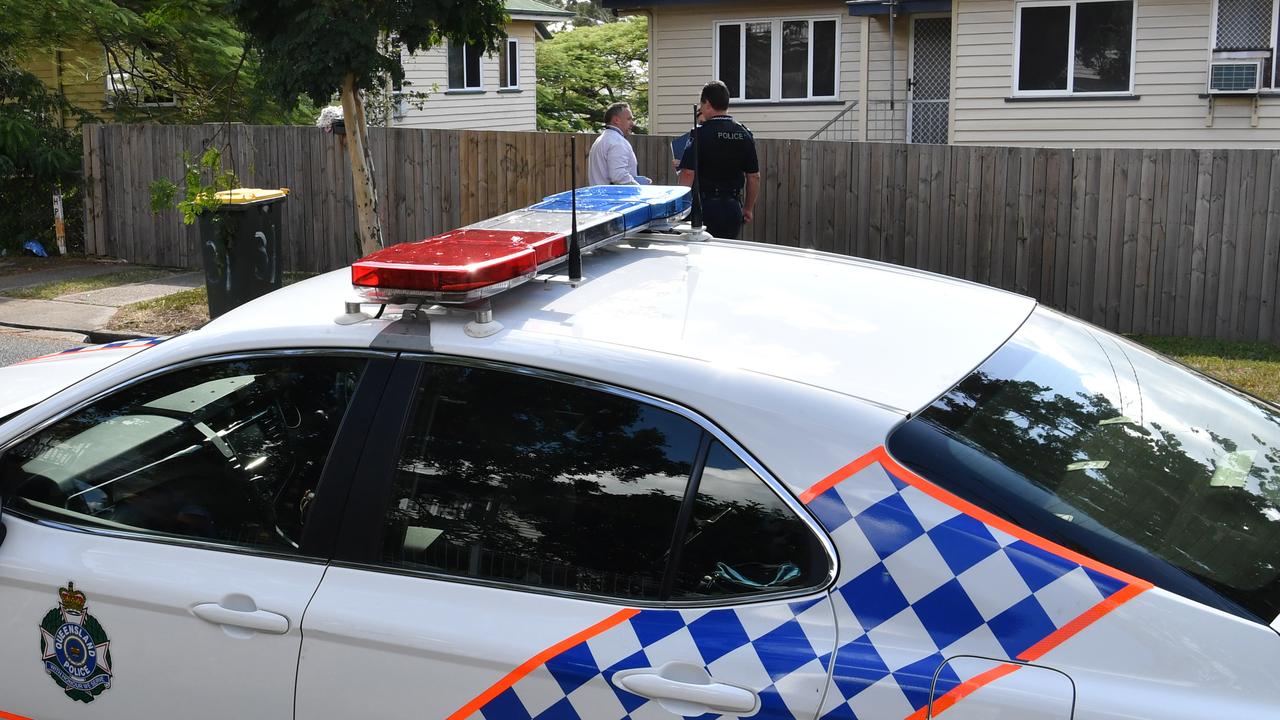
Police & Courts
Don't miss out on the headlines from Police & Courts. Followed categories will be added to My News.
Two Brisbane brothers with autism went to school smelling like urine and dog odour, and passing rocks and pebbles in their bowel movements, but Education Department staff did not report the situation.
The pair, known by pseudonyms Kaleb and Jonathon, were 19 and 17 when they were found severely malnourished, wearing nothing but soiled nappies, locked in a bare room with no access to food, water or toilets, while their father lay dead in the next room.
The Disability Royal Commission in Brisbane has heard this was despite multiple government agencies receiving hundreds of complaints over many years, relating to the diet, hygiene, neglect and violence the pair were subjected to.
A senior Education Department official conceded to the commission on Wednesday there were failings in its response to the boys’ neglect.
Acting assistant director-general Hayley Stevenson agreed the response of teachers at the boys’ school had the effect of enabling their poor treatment at the hands of their father.
The royal commission heard that in relation to Kaleb school staff supplemented his food, bathed him when he arrived at school, provided clean clothes and supplied nappies for use at school and in the home.
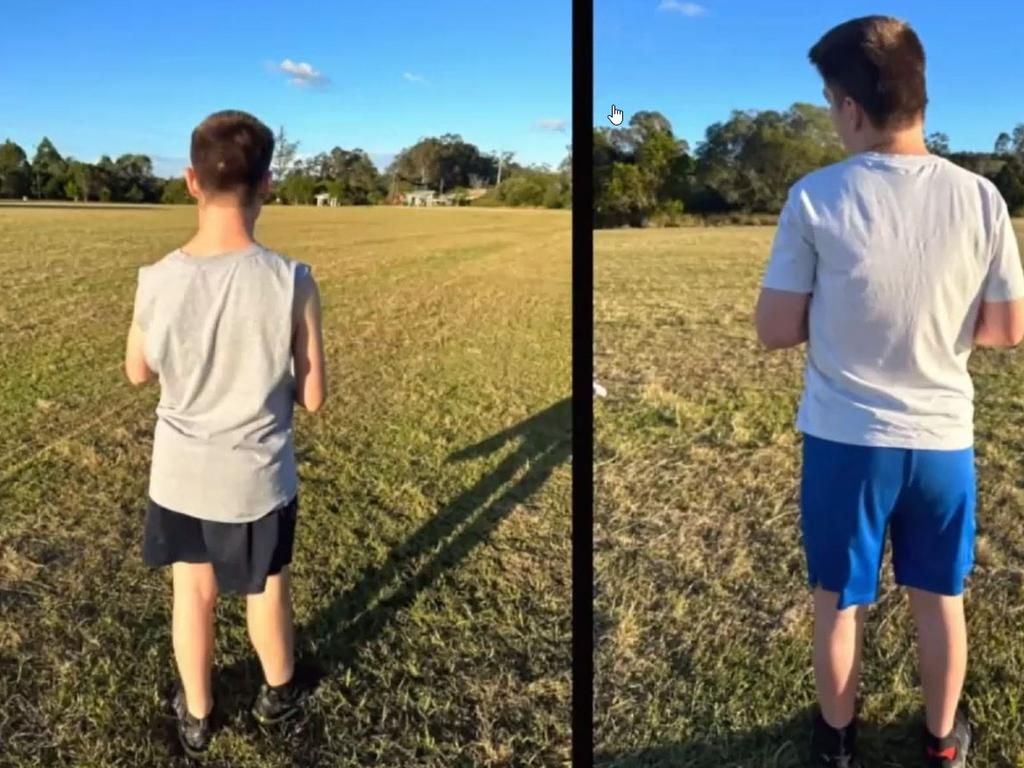
On a number of occasions in February 2018 Jonathon came to school with a “strong urine smell in his hair” which staff addressed by cutting it.
By May he was coming to school with a “strong dog odour, passing rocks/pebbles during bowel movements” and only dressed in shirts and shorts despite the cool weather.
Counsel assisting Gillian Mahony queried why none of this was reported to child safety officers.
“So if not two weeks after starting the school term there’s a continual smelling of urine in the hair that requires a haircut, if not continuing into May... there’s another intractable smell around the students and adding those other matters, wasn’t it obvious that this was a matter that ought to have at least been reported to Child Safety as a suspicion, at least, of possible neglect?” she asked.
Ms Stevenson agreed and said staff at the school had received training since the issue arose.
The royal commission heard the school had made just one report to child safety, in 2010, throughout the boys long association with the school.
“That’s a failing, isn’t it?” Ms Mahoney asked.
“In looking at where this situation ended and looking back, yes,” Ms Stevenson said.
“Is it fair to say though that the approach that was taken by the school of, in your words, supporting and opposed to reporting, had the effect of enabling (the father) in his substandard level of care for the children?” Ms Mahoney asked.
“Yes.”
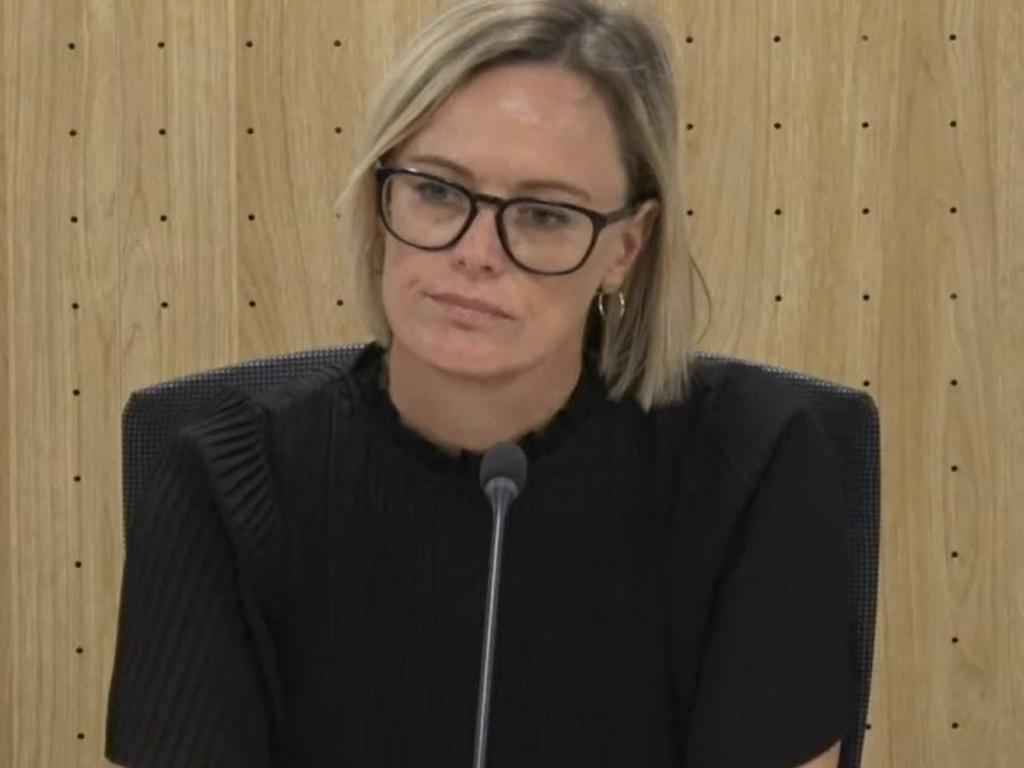
Ms Mahoney asked whether the department should have done more to protect the boys from the “from the violence, abuse, neglect and deprivation of their rights”.
“In looking back, yes, we should have done more. I think there is evidence of the school implementing a great deal of supports for both the students,” Ms Stevenson said.
“Clearly Kaleb and Jonathon, the school staff tried to make their lives better. But you’d have to accept in doing so, they enabled the behaviours of (their father),” Ms Mahoney said.
“Yes,” Ms Stevenson said.
“And they did not appropriately respond to the apparent child protection concerns as they were presented?” Ms Mahoney said.
“Yes.”
During examination by Kathryn McMillan KC, who is representing the Queensland Government, Ms Stevenson said the school saw an improvement in the boys’ condition and a decrease in the level of support needed once an agreement was put in place between Child Safety and their father.
The royal commission ended with Kaleb and Jonathon sharing a message and some photos showing their progress.
Senior Counsel Assisting Kate Eastman said: “They’d like us to tell you that they’re continuing on their journey and that this photo represents the continuation of their journey and looking forward to the future.”
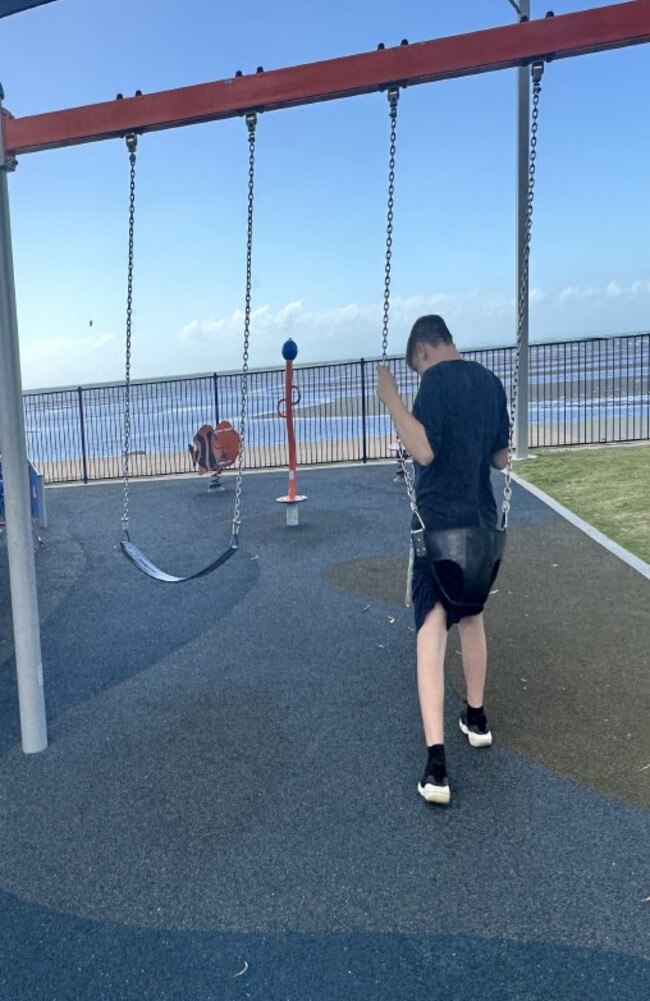
DOWNPLAYING OF RISKS DENIED
The chief practitioner of a child safety department has denied trying to downplay the risks posed to a pair of Brisbane brothers with autism who were beaten, starved and neglected by their father for nearly two decades.
One of those was the former department of child safety, now known as the Department of Children, Youth Justice and Multicultural Affairs, Queensland.
In a disturbing incident, child safety officers attended their home unannounced following a notice from a health practitioner.
As they were leaving the officers saw Kaleb sitting in the grass eating a “large raw dog bone which the dog was observed to have been eating at the time of child safety’s arrival”.
Ms Eastman asked: “Now, accepting at this stage that Kaleb was by then, I think, 18 … would not an observation of a young person eating dog – or chewing on the dog bone after the dogs had the bone, would have been something that should have alerted the department to a risk … (and) have required the department to do some more detailed investigation as to how and why circumstances like that could have ever occurred.”
Department of Children, Youth Justice and Multicultural Affairs, Queensland Chief Practitioner Dr Meegan Crawford said it was distressing.
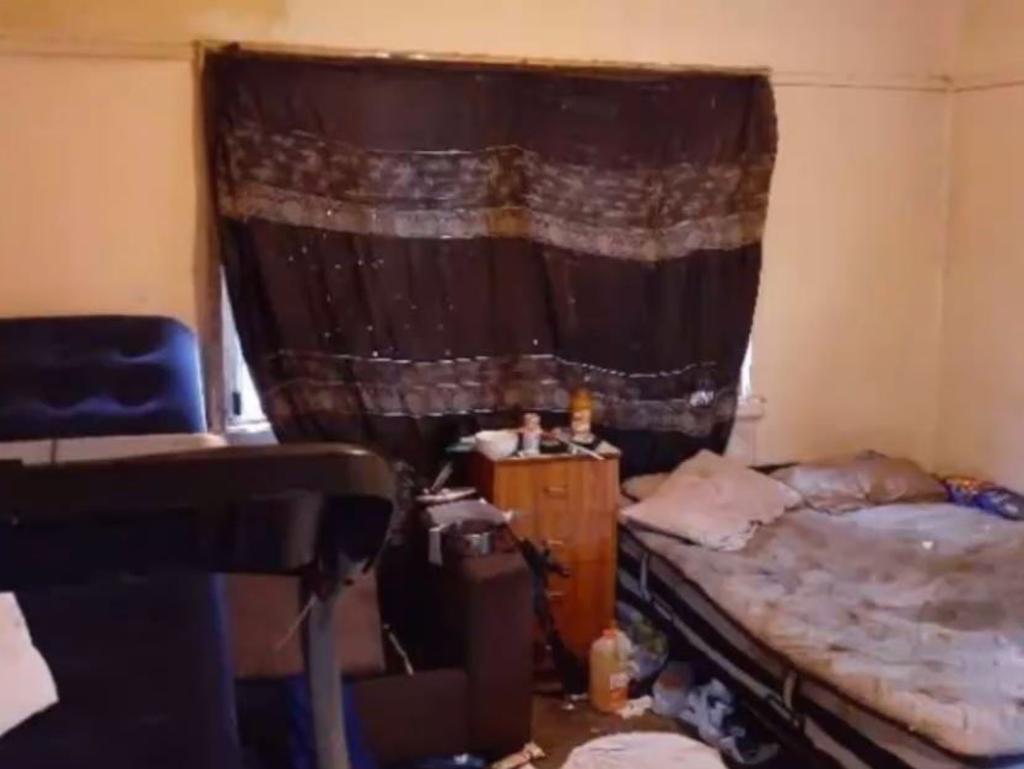
“I could see from the — worker’s own notes that they were very distressed about the situation — recommending strongly a multi-agency response to the needs of both children, and some follow-ups that then occurred. That was not a one-off visit.”
In her statement to the Commission Dr Crawford said over the department’s 20 years history with the family, practitioners “could be perceived” as over-estimating the father’s capacity to mitigate risks present and provide for his children’s needs.
Ms Eastman asked whether she was trying to “minimise” the risks by using the phrase “could be perceived”.
Dr Crawford disagreed.
“I think when I reviewed the file I could see some very rigorous assessments of this father and the impacts on the children and I could see that there were periods of time where we intervened actively with him, where we referred to other services, and where we did see improvements for the family over time.”
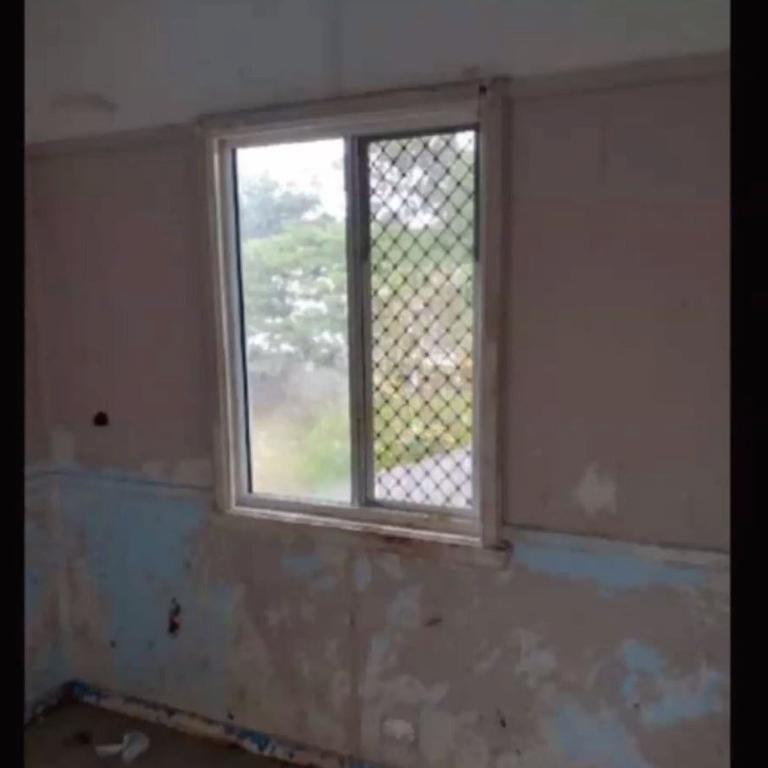
Dr Crawford accepted, following a tense series of questioning, that the department could have done more to prevent the abuse, neglect, violence and deprivation of rights of Kaleb and Jonathon but said there was no “pattern of violence” directed toward the children by their father.
“Do you accept that the violence, abuse, neglect and deprivation of their rights was preventable?” Ms Eastman asked.
“There were attempts to prevent the abuse by supporting the father.”
“But they were preventable, weren’t they?” Ms Eastman persisted
Dr Crawford then questioned what she meant by “violence”.
“When you say violence, there was not a pattern of physical abuse to these children,” she said.
Ms Eastman asked whether she had read the agreed facts including the father hitting and slapping the children at a camping ground.

“I understood that police had intervened at a camping ground and that they found there was no harm to the children.
“Do you accept that being locked in your room for a weekend or over the school holidays where you can’t get out of your room because there was no handles, you don’t accept
that’s violence,” an incredulous Ms Eastman asked.
“I wouldn’t regard it as violence,” Dr Crawford answered.
Dr Crawford said she wasn’t suggesting the circumstances were appropriate for the two boys.
Ms Eastman asked again whether the department could have prevented the neglect leading to the following exchange:
Dr Crawford: We certainly substantiated, we certainly had active follow-up, we identified that these were children in need of protection.
Ms Eastman: You could have done.
Dr Crawford: And we intervened.
Ms Eastman: You could have done more.
Dr Crawford: Could have done more.
Ms Eastman: Do you accept that.
Dr Crawford: Yes
Ms Eastman: And do you accept that you should have done more?
Dr Crawford: Yes.
Royal Commissioner Commissioner John Ryan said the boys’ treatment sounded like “torture” as he questioned Dr Crawford that they were not subjected to violence.
“We were told these boys showered night after night in cold water because there was no gas in the house, where they slept night and night in a room, locked from the outside with no blanket wearing nothing more than a nappy, night after night,” he said.
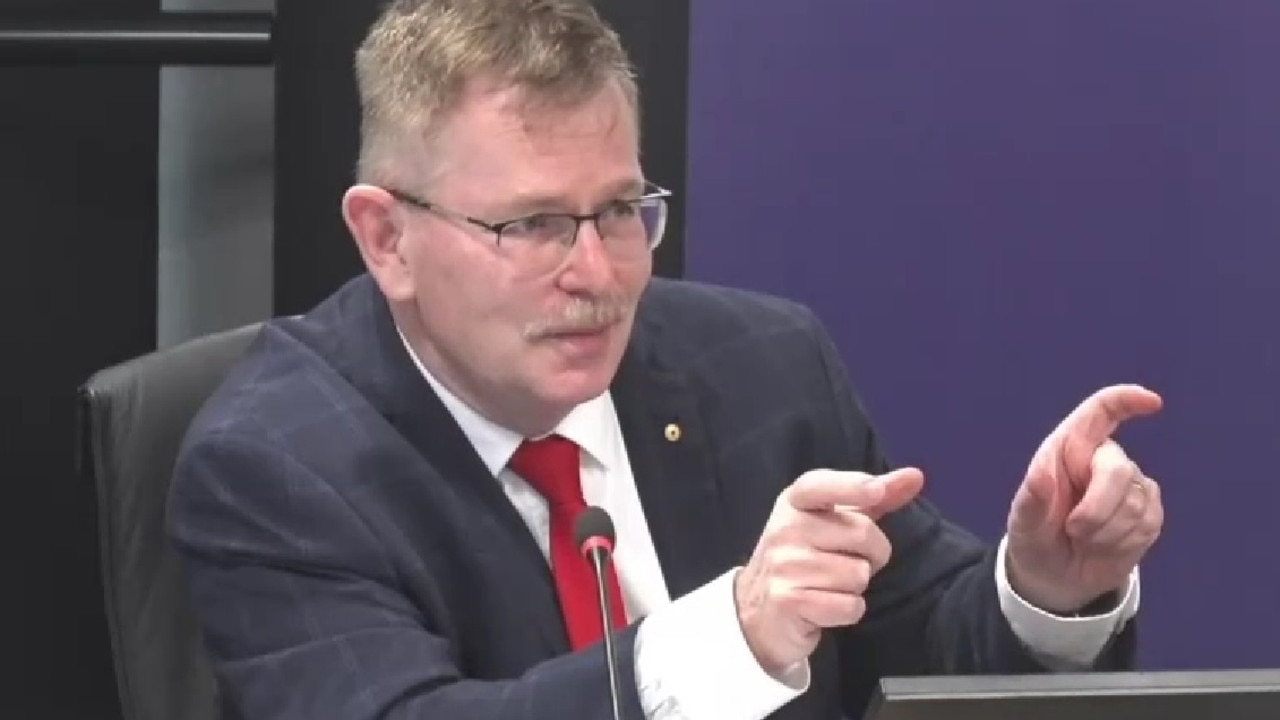
“In an unfurnished room where they had no access to the toilet and they were literally found in the morning slipping around in their own faeces, and then they were being fed raw meat, but they couldn’t even open the packet.
“Are you seriously telling the royal commission that those conditions, which sound like torture to me, don’t represent that these boys did not experience violence?”
Dr Crawford agreed that violence did have a wider definition.
“I acknowledge that and I’m sorry for the misunderstanding, Commissioner. I was referring to physical abuse at the hands of their father but I’m sorry that there’s been a miscommunication,” she said.
“Would you agree with us that violence has a slightly wider definition,” he asked.
“Indeed,” she responded.
TIMELINE OF HORRORS
2000: Kaleb is born and immediately identified as a child at risk of neglect. His mother is known to Child Safety and his home described as “questionable and unstable”.
2000: At three months of age Kaleb is removed from his parents and placed in foster care. During this time he is diagnosed with significant developmental delay
September 2002: Kaleb is dropped off at his father’s house. His father calls Child Safety, drunk, telling them to take his son away as his partner had left him.
October 22, 2002: Kaleb misses a general paediatric check-up.
November 2002: Kaleb’s mother, now pregnant with Jonathon, waits in the maternity outpatients section with her son for four hours. Kaleb’s intoxicated father arrives, behaving erratically, and starts throwing punches and pushing at security.
December 2002: The father pleads guilty to behaving in a disorderly manner in a public place and is convicted.
February 3, 2003: Kaleb misses an audiology appointment
February 2003: A community member contacts Child Safety over concerns Kaleb was being neglected, including the father’s alcohol and drug use, Kaleb’s hygiene, and his care.
February 14, 2003: Child Safety deems Kaleb isn’t at immediate risk but is at “significant risk of future harm” and his case is labelled “priority response 1 for 24 hours”.
March 2003: Jonathon was born and later diagnosed with global development delay.
2004: Their father becomes their sole carer.
March 3, 2010: The brothers’ school reports to Queensland police the boys were showing signs of hunger, and that their bowel movements contain “foam rubber”, alongside concerns their house had an overpowering smell and they were confined to a room.
May 28, 2010: Queensland police turn up unannounced to the boys’ home at 9.30pm to investigate the March 3 notification. The father denies the allegations. Police calls after-hours Child Safety “crisis care”. The report noted the children “appear isolated” and “unlikely to be provided the necessities of life”.
May 29, 2010: Police return with Child Safety and not “the environment the children were exposed to was worse in daylight”. The boys are removed from their father’s care.
June 4, 2010: The boys are returned to their father.
January 10, 2015: Queensland police conduct a “street check” of the boys at a camping ground after another camper raised concerns over the welfare of the children who were described as “severely disabled” and “could not speak”.
January 19, 2015: Queensland police were tipped off by a member of the public of potential violence against the boys while they were camping with their father for a few weeks. This included allegations the boys were spending most of their time in a tent in 35C weather, nappies weren’t changed and smelt bad. One witness said they could “hear the father laying into one of them” and “smacking him loudly”.
January 22, 2015: Police went to the campground and “observed children to be healthy but obviously were wearing soiled nappies”. They concluded from their observations there was no evidence of a criminal offence and “nil child protection concerns”.
December 12, 2016: The process of making Jonathon an NDIS participant begins
December 20, 2016: The process of making Kaleb an NDIS participant begins.
February 13, 2018: Teachers organise for Kaleb and Jonathon to get a haircut at school because of a “strong urine smell” in their hair that wasn’t coming off in the showers they were being given at school. Child Safety was not notified.
May 23, 2018: Teachers note Jonathon has “come to school smelling of a strong dog odour” and “passing rocks, pebbles during bowel movements”. He is also showing up to school in shorts and a shirt despite the cooler weather. Child Safety is not notified.
March 3, 2018: Kaleb is accepted into the NDIS.
April 9, 2018: Jonathon’s application is automatically cancelled due to lack of information.
April 2018: Queensland Health sees Jonathon for his seizures.
August 17, 2018: Kaleb’s first NDIS plan is finalised, worth $102,000. In the end only $361 is used.
October 2019: The boys’ father does not attend a Suspected Child Abuse and Neglect Team meeting
November 2018: A member of the public refers concerns about Jonathon to Child Safety.
December 3, 2018: Suspected Child Abuse and Neglect Team meeting held.
January 14, 2019: A Suspected Child Abuse and Neglect team report notes: “(Boy’s father) was doing his absolute best and he loved Kaleb and Jonathon.”
February 9, 2019: A health professional notifies Child Safety of concerns relayed to them by a community member about Jonathon.
February 10, 2019: Child Safety visits the home unannounced over concerns related to Jonathon. Kaleb, who is 18 at this stage, is seen “sitting in overgrown grass at the front yarn eating a large raw dog bone which the dog was observed to have been eating” when officers first arrive. Child Safety recommends a “multi-agency response” but Kaleb is an adult and they have no jurisdiction.
August 9, 2019: Meetings for Kaleb’s second NDIS plan were held with his father and a support worker. Kaleb’s father, who is hostile, insists they don’t need help or care. The plan is later finalised to the sum of $8000.
January 15, 2020: Kaleb’s third plan is developed and finalised on the same day after his father, who was in hospital, said the boy needed more care. The plan was worth $41,000. In the end $1200 is used.
May 27, 2020: A family friend alerts emergency services. When paramedics and police arrive they find Kaleb and Jonathon locked in a bare bedroom, unclothed and malnourished. Their father is dead in the next room.
May 29, 2020: The child safety minister Di Farmer holds a press conference and says: “The public want answers. So, do we. If there is any place in the system that has failed our children, we can make that system right and that is what we’ve asked the commissioner to do.”
June 2020: The boys stay in hospital for two weeks as they are treated for kwashiorkor, a severe protein deficiency usually seen in children from developing nations rife with poverty and famine.
July 2020: Work to have Queensland Family and Children’s Commissioner investigate what happened to the two brothers gets under way.
October 2, 2020: Then attorney-general Yvette D’Ath informs the Queensland Family and Children’s Commissioner the government does not intend to refer the matter to the Child Death Review Board, which has more extensive investigative powers.
January 14, 2021: The QFCC provides a report to Attorney-General Shannon Fentiman.
March 30, 2021: Ms Fentiman provides a copy of the report to relevant ministers, including housing. Ms Fentiman requests the QFCC defer any broader discussion of the report until the government has an “opportunity to formally consider something”.
July 8, 2021: The QFCC receives a call from Ms Fentiman’s office at 4pm requesting a redacted version of the report by the next day.
July 9, 2021: The QFCC sends Ms Fentiman the redacted report as requested.
August 20, 2021: The redacted report is publicly released.



